31 Jul Field Note: Growing Up With Pivot
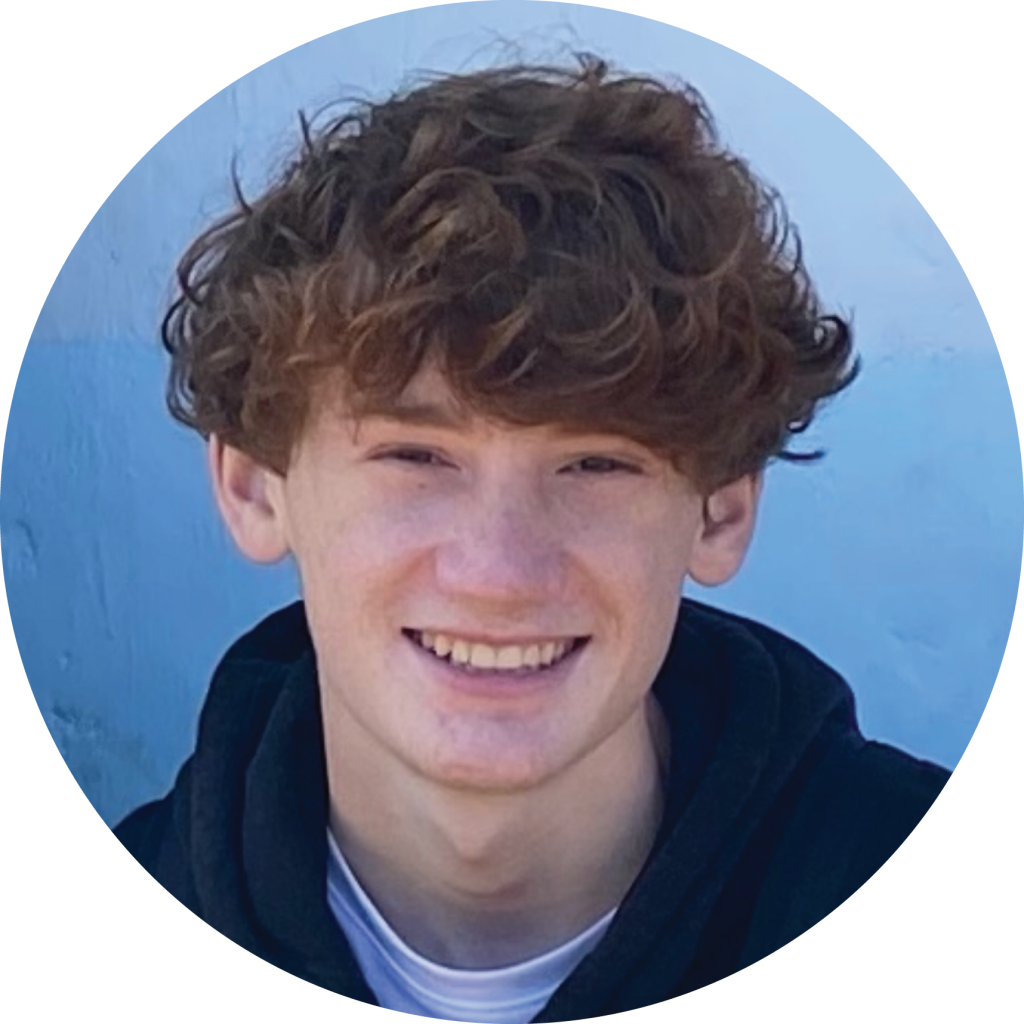 ABOUT THE AUTHOR:
ABOUT THE AUTHOR:
Michael Herrnstein is a junior in high school and the eldest child of two of Pivot’s co-founders, Jim and Robin Herrnstein. Following numerous family trips to Madagascar accompanied by his parents, grandmother, and four younger siblings, the summer of 2022 marked his first solo trip to Ifanadiana District, where he spent a month with the Pivot team. Michael’s interest in the sciences (much like that of his parents) has a strong influence on the lens through which he sees the world. He is also currently training to get his pilot’s license.
In the following piece, Michael reflects on his recent time in the field and offers his unique perspective on Pivot’s work, garnered from a decade of closely observing the birth and evolution of a global health organization.
As the son of two of Pivot’s co-founders, I have watched Pivot grow from an idea to a reality over the past decade, now serving hundreds of thousands of people, and changing the quality of life for Malagasy people throughout Ifanadiana District.
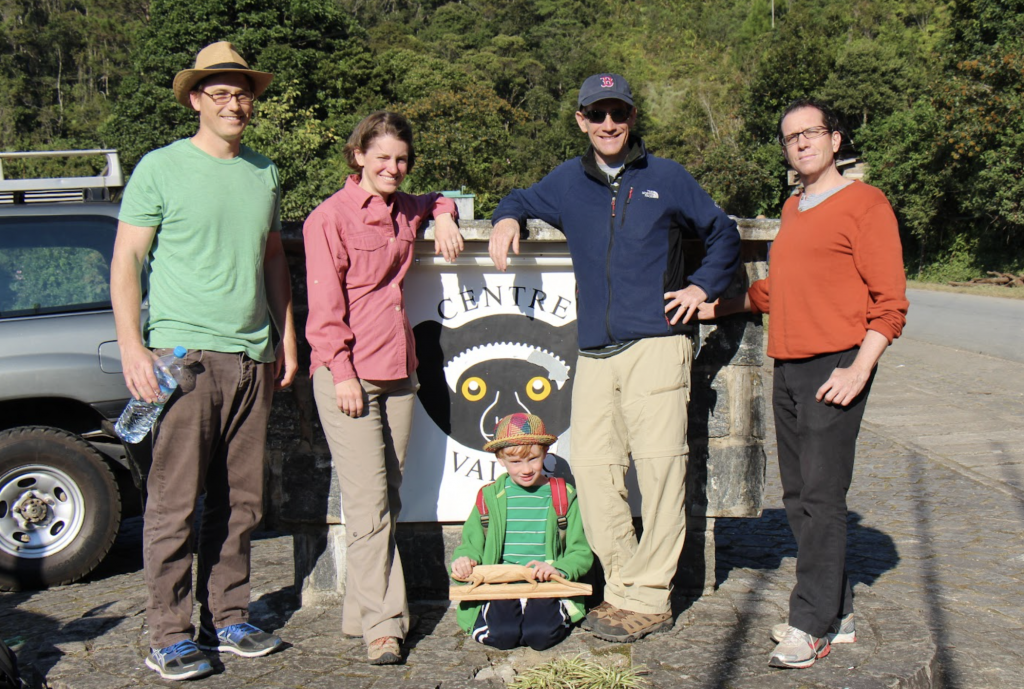
Michael (center) at Centre ValBio with Pivot’s four co-founders during their first trip to explore the possibility of launching a healthcare NGO in Ranomafana. From left to right: Matt Bonds, Robin Herrnstein, Jim Herrnstein, and Michael Rich.
I first came to Madagascar when I was six. I went with my parents to a remote town called Ranomafana, where we stayed at the research station Center ValBio because it had connections with Stony Brook University, which is near our home in the US. My parents were there at first as tourists, to see the unbelievable wildlife and scientific research underway, but they were struck by the unimaginably poor level of health care and decided they wanted to help change it. This was how the idea of Pivot was born. My next five trips to Madagascar would allow me to see a progression that changed the lives of thousands.
Points of Progress
In my opinion, one of the most significant changes is the Malagasy peoples’ growing trust in the health system Pivot is supporting. On my early visits I remember visiting community health sites. They were tiny, with no one to work them and no medicine to cure patients. They were considered a place you would go to die, and for good reason. There was no health system to provide care for patients. I have watched Pivot renovate health centers, hospitals, and health outposts throughout the district, and build a strong medical system that can tend to people’s needs. With the proper medical care Pivot is enabling, the medical system is losing its grave reputation. Now people are becoming more and more open to getting care at the health centers, and they are changing from being known as a place you would go to die to a place you go to get cured.
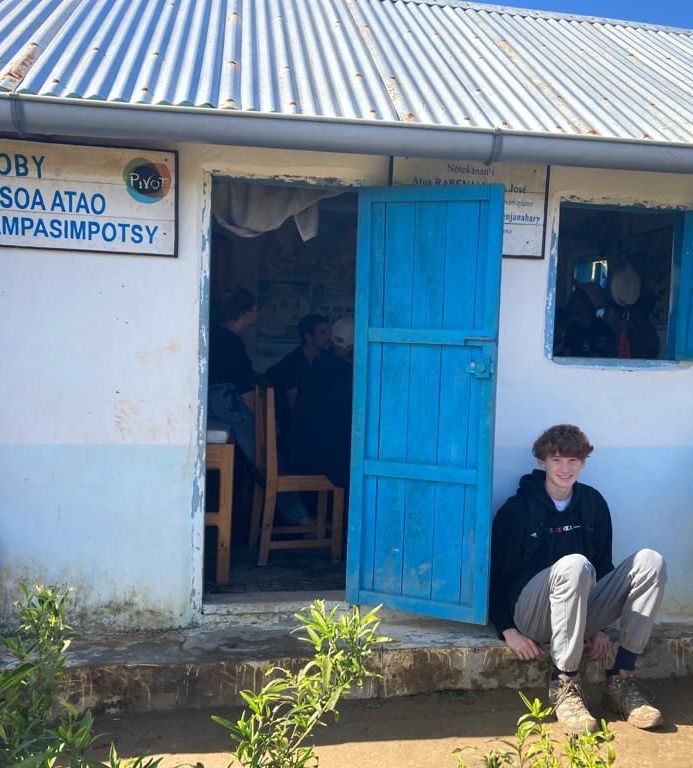
Michael at one of the many community health posts he visited over the summer.
On my current trip, I have witnessed hundreds of people bringing their kids for vaccinations, which is mind-blowing when I compare this to what I saw years ago. I have also visited countless health centers during this trip, and every time there are people being consulted, people receiving medicine, women giving birth, children being cared for, and more. Seeing this is amazing, as it proves that people are giving their trust to the health system. This is saving thousands of lives, and instilling a positive connection between Pivot and the people it works with.
This brings me to my next point, which comes from a phrase that has had me thinking since I was little: “people are sick because they are poor, and poor because they are sick.” This concept shows the cycle between sickness and poverty, and helps highlight why Pivot is so important. As the population trusts the health system with vaccinations and medical care, they become healthier, leading to people having more time to make an income and support their families or for kids to go to school. The improvements in healthcare that Pivot provides helps to break the cycle between poverty and sickness, because a healthier population has time and energy to grow economically.
Pivot has also made medical care commonplace in a place where it was once a feat to treat a single child. When I was seven, I went on a social worker home visit to deliver food supplements to a little girl named Florine (pictured below). She was malnourished, and Pivot was there to help. She survived and is now living a completely normal life thanks to Pivot. At the time that single treatment was a huge success. Currently, there are about 200 kids enrolled in the malnutrition treatment program. This shows how far Pivot has come, and how many lives Pivot is on track to save. The main point is, things that were once very rare now happen routinely as part of the system which Pivot is creating and supporting.
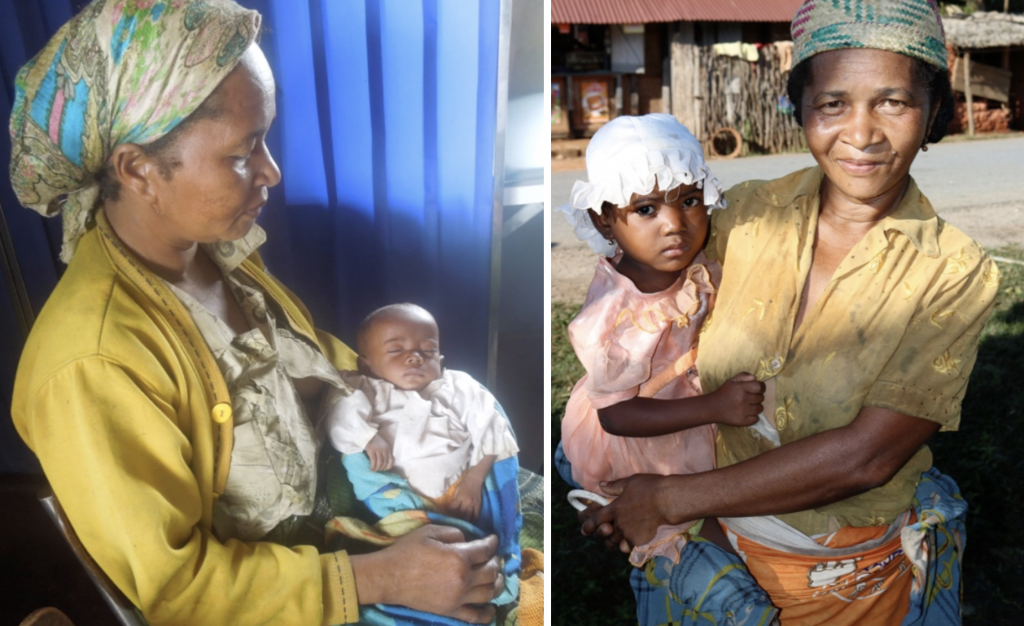
On the left, Florine and her grandmother at the health center where Florine was diagnosed with severe acute malnutrition. To the right, Florine, living a healthy life years after her treatment and recovery.
Treating a patient is just the first step, however, and through my time here I have watched Pivot create impressive programs focused on sustainability and prevention. Treating a child for malnutrition is only half the problem, as in many cases, if the child goes back to their previous living conditions, malnutrition will reappear. This is why community education is so important in the fight for better healthcare. Pivot holds cooking classes weekly that show patients’ families cooking techniques to provide a more balanced diet for their families so when they go home they have a newfound knowledge on eating safe and healthy food. They are extremely important for malnourished children to help the body fight off dangerous diseases. While here, I have been working on a vegetable garden project, which has the same general idea. The vegetable gardens are located at the health centers, and not only are they growing food for patients but they are used as a teaching tool. This is an extremely important concept, and Pivot has many similar programs in place based around sustainability and education.
Opportunities for the Future
With all the time I have spent with Pivot I have also thought of some exciting opportunities, especially with regional expansion on the horizon. I have brainstormed some ideas which I think can help to improve Pivot’s impact.
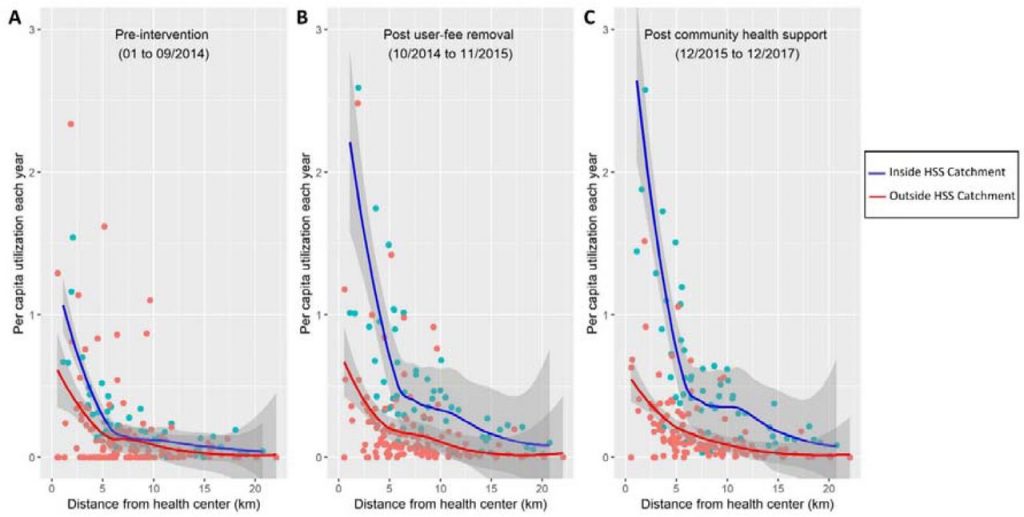
SOURCE: Geographic Barriers to Achieving Universal Health Coverage in a rural district of Madagascar (2020), a study led by Dr. Andres Garchitorena, Associate Director of Pivot Science.
To begin with, one of the nonstop struggles I see is the transportation of patients from remote villages to health centers. Sometimes people need to be carried for days on stretchers to get to the nearest health centers, which can be a matter of life or death – we call this transportation “human ambulance.” Most roads are simply too bad for any vehicles to get through, so people need to carry the patients. As the distance the patient lives from the health center increases, the likelihood of receiving care exponentially decreases (as seen in the figure above), leading to many deaths. I would have recommended investing in building better roads, however I quickly learned that this is not so easy, not only because of costs and maintenance, but because political complications arise as well.
I believe it would be helpful for Pivot to make the people who carry patients a paid job. Generally it is a volunteer job, where people such as friends and family will help carry a loved one. The roads affect Pivot, but are not Pivot’s main concern. Fixing roads would also greatly help, and I believe this is an opportunity for Pivot to partner with another NGO. This would make a big impact on healthcare as a Pivot ambulance could receive a patient rather than the patient having to be carried for hours.
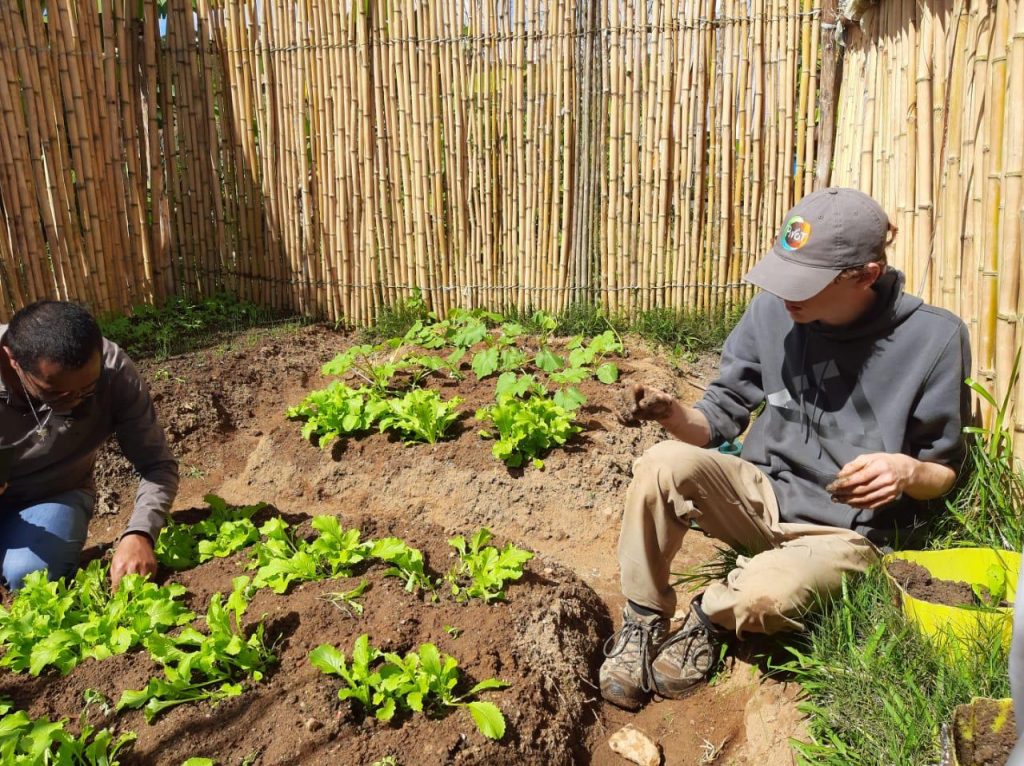
Michael working in one of several health center-based gardens that he helped establish during the course of his month-long stay in Ifanadiana District this summer.
Building on the change I have witnessed regarding sustainability, education, and prevention of the recurrence of diseases, I believe there is an opportunity for more here as well. The cooking and gardening classes help to build understanding, but if people do not have the materials to do the task themselves the efforts are fruitless. I believe there is a great opportunity for Pivot to distribute the seeds and saplings for the plants patient families will see in the garden such as cabbage, lettuce, and carrots. This way, when they return home, they will have all of the materials needed to get right to work creating better food, which in the long run will lead to a healthier all around family.
Another opportunity I see for Pivot is the institution of more suitable housing for the families whose loved ones are being treated. Because most patients travel long distances to health centers, they are usually accompanied by their family. Families can be displaced anywhere from a few days to many weeks from their homes, leaving behind other family members as well as their regular sources of food, lodging, and income. Bad living conditions can expose families to higher risk of disease, leading to a cycle of sickness where one family member is getting sick while another is being treated.
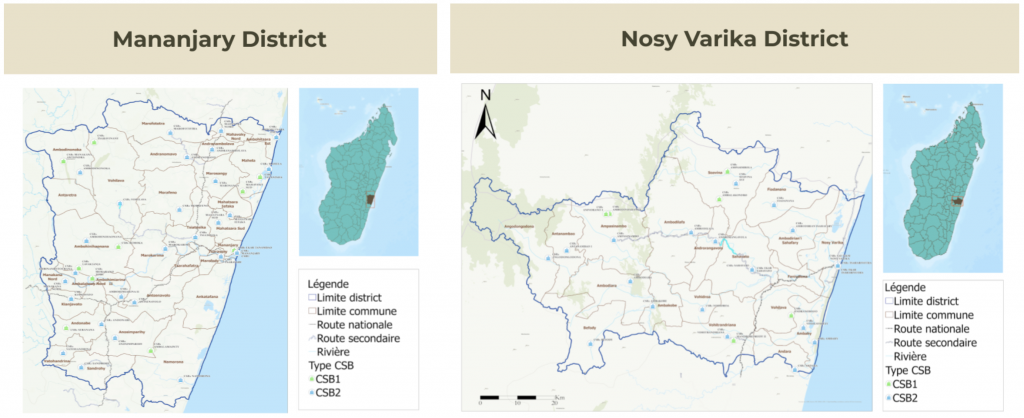
Maps of the two districts where Pivot is expanding. Covering these populations along with that of Ifanadiana District will bring Pivot to operate on a regional scale.
Pivot’s expansion to the districts of Mananjary and Nosy Varika (shown in the maps above) will bring Pivot into a new geographic setting that includes waterways. I believe there is a great opportunity in this, and it could be executed by distributing small boats, with trained drivers to each village. This could make moving doctors, patients, and supplies a fast and easy task. Rather than walking for hours, a patient could be transported in a smooth fast boat ride. I also think it would be smart to have one larger boat as well, to act as a sort of water ambulance. This could have enough room for a stretcher and medical staff to care for a patient on their way to a health center or hospital. It is a simple example of taking advantage of the geography, and I believe this could help save lots of lives.
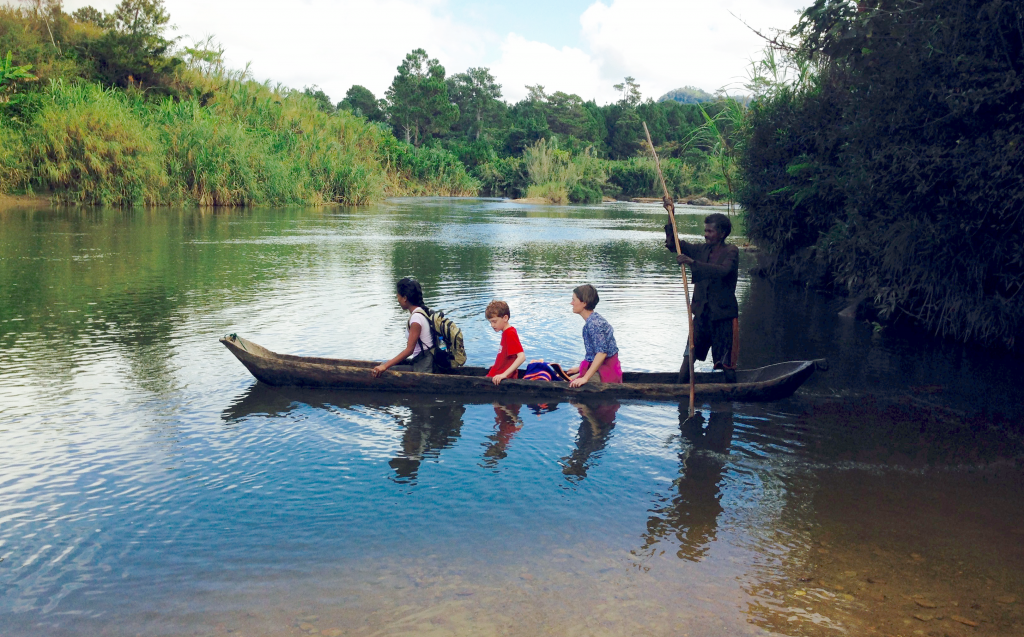
One of Michael’s earlier experiences traversing a river by dugout canoe in Ifanadiana District; part of a typical trek to a community health site in rural Madagascar.
This isn’t the only vehicle I see as an opportunity to capitalize on. I have learned that the new districts have many grass runway strips. A small aircraft like that could help to move stock long distances in very short amounts of time, carry very sick patients to hospitals from distant villages, or carry staff around the vast area Pivot plans to cover. As an example, it takes four hours on a high-speed boat plus eight more hours on a motorcycle to travel between one of these new districts’ more (but not most) remote health centers and its hospital. This is a project for further in the future, but – being a student pilot – it gets me excited as I know first hand how much a small plane like the ones I fly could help.
I have been given the opportunity to watch amazing transformation happen in Ifanadiana District and I have seen first hand how, in a place where healthcare was once nonexistent, there is now a system where people who once would have died from curable diseases, have access to the medicine they need. Pivot has built an amazing team of people, from the drivers to the directors, who care so much and strive to go above and beyond to make an extraordinary impact through creating a model of universal health coverage for the district country.
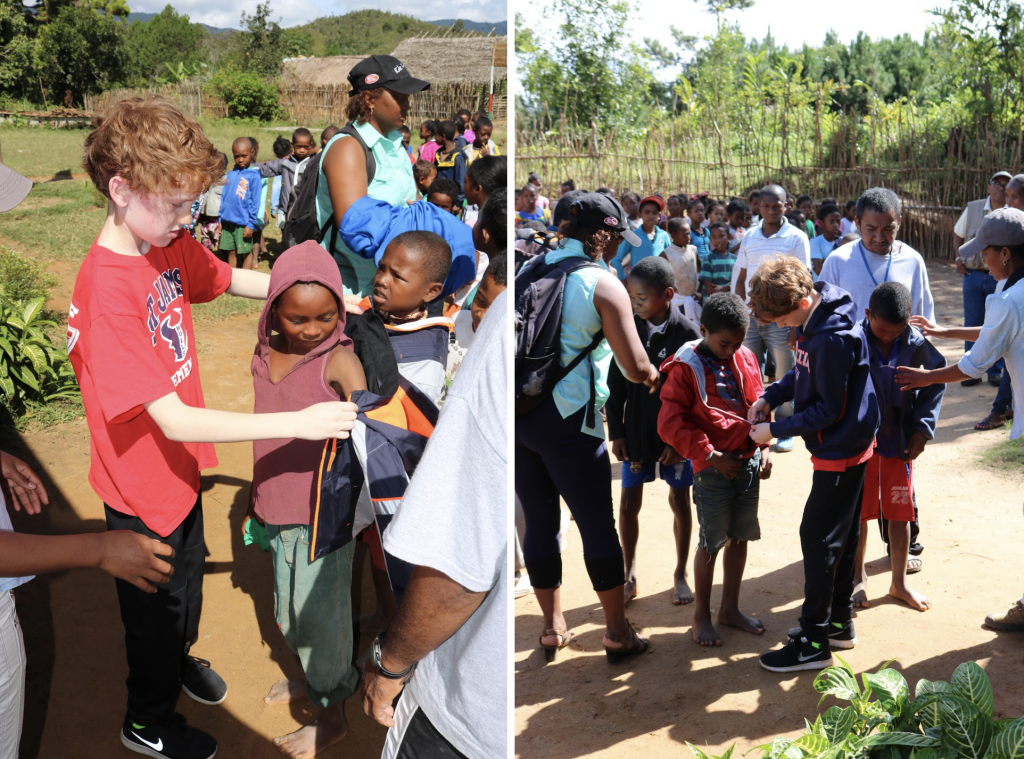
Michael during one of his early trips, helping the social work team distribute jackets to schoolchildren, which he had collected through a coat drive at his elementary school.
This is just the beginning for Pivot, and I am excited about what the future holds. That being said, there are so many ways for anyone to help and make their mark. Whether you want to get involved to the point where you visit Madagascar or are just interested enough to spread the word, Pivot is grateful. From volunteering, to donating, to simply telling a friend about Pivot’s work, the team and the people they serve will be thankful for your contribution! I believe now more than ever is the perfect time to learn more about an organization that is on track to change so many people’s lives.
